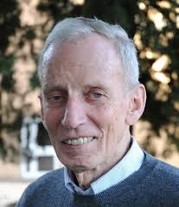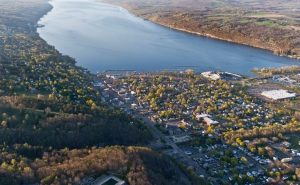Sorry, this entry is only available in Italiano.
Premio di Laurea in memoria di Nicoletta Gazzea, Ricercatrice ISPRA
Pianeta 3000 – Cambiamenti climatici: evidenze scientifiche, rischi ed opportunità di mitigazione – Filippo Giorgi – ore 16:00, 12 novembre 2019
Cambiamenti climatici: evidenze scientifiche, rischi ed opportunità di mitigazione
Seminario di Filippo Giorgi (International Centre for Theoretical Physics)
16:00-18:00, 12 novembre 2019
Aula MAGNA, Campus Leonardo,
Politecnico di Milano (PoliMI), Piazza Leonardo da Vinci, 32
Agenda:
- Saluto del Prof. Ferruccio Resta, rettore del Politecnico di Milano
- Introduzione di Marino Gatto, Politecnico di Milano
- Conferenza di Filippo Giorgi ICTP, Trieste
- Domande e discussione
Filippo Giorgi presenterà e discuterà le evidenze scientifiche che portano a concludere che il riscaldamento climatico globale è in atto ed è per la maggior parte dovuto alle emissioni di gas serra di origine antropica. Gli scenari di clima futuro saranno poi descritti come simulati dall’ultima generazione di modelli climatici, insieme con i principali impatti dei cambiamenti climatici su società ed ecosistemi naturali. Attenzione particolare sarà data agli effetti del riscaldamento globale sul ciclo idrologico terrestre. Infine, saranno brevemente discusse alcune opzioni di politiche da adottare per contenere il riscaldamento globale all’interno degli obiettivi dell’accordo di Parigi del 2015.
Filippo Giorgi è esperto di fama internazionale di modellistica climatica e di temi legati ai cambiamenti climatici. Ha lavorato a lungo al National Center for Atmospheric Research (NCAR) di Boulder, Colorado, USA. Nel 1998 si è trasferito all’International Centre for Theoretical Physics (ICTP) di Trieste, dove è il responsabile della sezione di Fisica della Terra. Ha contribuito alle attività dell’Intergovernmental Panel on Climate Change (IPCC), quale unico scienziato italiano membro dell’organo esecutivo (Bureau), ottenendo così il premio Nobel per la Pace nel 2007. Nel 2018 è stato insignito della medaglia Alexander von Humboldt dell’Unione Geofisica Europea per il suo contributo al progresso della scienza nei paesi in via di sviluppo. Nel 2018 ha pubblicato un libro divulgativo sui cambiamenti climatici edito dalla Franco Angeli ed intitolato L’uomo e la farfalla. Sei domande su cui riflettere per comprendere i cambiamenti climatici.
Evento organizzato da Pianeta 3000, un’iniziativa del corso di Laurea in Ingegneria per l’Ambiente e il Territorio del Politecnico di Milano che ha lo scopo di migliorare l’informazione in diversi campi delle discipline ambientali e territoriali mettendo il luce il loro ruolo anche nel contesto economico e sociale
(Italiano) Quarto incontro IAT@WORK – mer 25 settembre ore 12:15 in Auditorium (casa dello studente)
Compilazione del Piano di Studi per gli studenti della Laurea
Messaggio dal docente referente della Commissione Piani di Studio, Prof.ssa Clelia Marchionna
Cari studenti,
vi segnalo che nella compilazione del piano di studi dovete seguire, come il sistema stesso vi suggerisce, la sequenza degli insegnamenti dei vari anni di studio, cioè primo, poi secondo poi terzo anno. Presentare un piano di secondo anno togliendo gli esami di primo anno non sostenuti è in generale non accettabile da un punto di vista didattico.
E’ inutile illudersi di poter proseguire senza avere le basi per lo studio degli insegnamenti successivi. Si finisce solo ad accumulare ritardo. Allo stesso modo, togliere al terzo anno esami di primo e secondo anno non sostenuti è negativo dal punto di vista didattico. Tutti i piani di studi in cui “forzate” questa eliminazione devono passare per approvazione dalla commissione , che per i motivi sopra esposti non li approva e vi deve contattare per modificarli.
Vi preghiamo quindi di evitare queste modifiche. Nel caso abbiate vere esigenze di un piano autonomo (non di un piano standard ma fatto alla rovescia!!) per cambiamenti di orientamento o altro sono a vostra disposizione per discuterne.
Prof.ssa Clelia Marchionna
(per la Commissione Piani di Studio)
Water Quality Monitoring, Modelling and Management: current needs, challenges and opportunities
A seminar by Prof. Daniel Pete Loucks, Emeritus Professor at Cornell University
Monday, July 15 at 2.30PM in Aula Castigliano, Campus Leonardo, Politecnico di Milano
Abstract: This talk will offer some thoughts regarding the current needs, challenges and opportunities in water quality monitoring, modelling and management. Many needs are highlighted by major pollution events that continue to persist and have not yet been successfully managed. Opportunities mostly focus on improving model applicability or ease of implementation. Challenges seem in most cases to be related to insufficient data for model calibration and validation. This in turn reflects on the challenges of maintaining long term monitoring and knowing what to monitor even before such data are deemed needed. Data useful for developing and validating large scale water quality models are often only sparsely available if at all. This applies in particular for emerging pollutants (e.g. plastics, chemicals, drugs), and especially in most developing countries. Monitoring and modelling water quality at the global scale is important to identify and predict robust hot spot regions of severe water quality degradation, to better understand future (global) changes in response to management actions, and to quantify indicators and linkages among SDGs. For many pollutants, and especially at large scales, water quality modelling is still in its infancy. These are needed to enable meaningful water quality assessments and inform policies needed for water quality management and decision making.
Short Bio: D aniel P. Loucks, Emeritus Professor of Civil and Environmental Engineering and Professor at the College of Human Ecology at Cornell University in the United States, has been actively involved in both the development and application of water resources systems models for over four decades. As a consultant to private, governmental and international organizations he has participated in regional water resources planning, development and management projects in Africa, Asia, Australia, Eastern and Western Europe, and North and South America. Extended bio and contact.
aniel P. Loucks, Emeritus Professor of Civil and Environmental Engineering and Professor at the College of Human Ecology at Cornell University in the United States, has been actively involved in both the development and application of water resources systems models for over four decades. As a consultant to private, governmental and international organizations he has participated in regional water resources planning, development and management projects in Africa, Asia, Australia, Eastern and Western Europe, and North and South America. Extended bio and contact.

